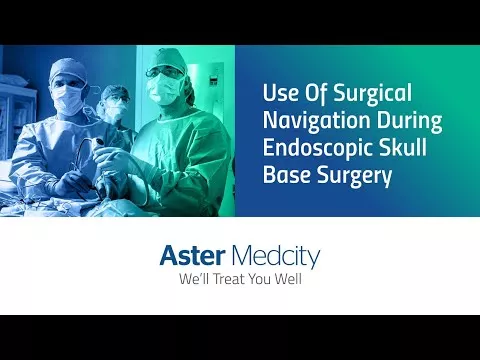What is Vestibular schwannoma surgery?
Vestibular schwannoma surgery is a surgical procedure performed to remove a type of benign tumor known as a vestibular schwannoma. These tumors grow from the coverings of the nerve that connects the ear to the brain, and they can cause hearing loss, tinnitus (ringing in the ear), balance problems, and other symptoms.
The surgical procedure for removing a vestibular schwannoma typically involves making an incision behind the ear and opening a small piece of bone to access the tumor. The neurosurgeon then carefully removes the tumor microscopically, taking care to avoid damaging the surrounding nerves and tissues. Depending on the size and location of the tumor, the surgeon may use a microscope, endoscope and/or other specialized tools to aid in the procedure.
After the tumor has been removed, the neurosurgeon may need to repair any damage to the nerve or other tissues. The incision is then closed with stitches, and the patient may need to stay in the hospital for 3-4 days after the surgery.
Why and when Vestibular schwannoma surgery is recommended?
Vestibular schwannoma surgery is recommended when the tumor is causing symptoms or growing rapidly. The decision to undergo surgery is made on a case-by-case basis, considering factors such as the size and location of the tumor, the patient's age and overall health, and the severity of their symptoms.
Some of the reasons why a doctor might recommend vestibular schwannoma surgery include:
- Hearing loss: If the tumor is causing hearing loss that is significantly impacting the patient's quality of life, surgery may be recommended.
- Balance problems: Vestibular schwannomas can cause balance problems, including vertigo and difficulty walking. If these symptoms are severe, surgery may be necessary.
- Rapid tumor growth: If the tumor is growing quickly, surgery may be recommended to prevent further damage to the surrounding nerves and tissues.
- Pressure on the brain: In rare cases, a vestibular schwannoma can grow large enough to press on the brain and cause neurological symptoms such as headaches, seizures, or changes in vision. In these cases, surgery may be necessary to relieve the pressure.
It's important to note that not all vestibular schwannomas require surgery. In some cases, the tumor may be small and not causing significant symptoms, in which case a "watchful waiting" approach or stereotactic radiosurgery may be recommended. The decision to undergo surgery should be made in consultation with your neurosurgeon.
How is life after Vestibular schwannoma surgery?
Life after vestibular schwannoma surgery can vary depending on the size and location of the tumor, as well as the individual's overall health and other factors. However, in general, many people can return to their normal activities within a few weeks after surgery.
Here are some things to keep in mind about life after vestibular schwannoma surgery:
- Recovery time: It can take several weeks to a few months to fully recover from vestibular schwannoma surgery. During this time, it's important to follow your doctor's instructions and avoid strenuous activities.
- Balance problems: If the tumor was causing balance problems, you may need rehabilitation by a physical therapist to regain your balance and strength after surgery.
- Follow-up care: After surgery, you will likely need to have regular follow-up appointments with your doctor to monitor your recovery and watch for any signs of recurrence.
In general, many people can resume their normal activities after vestibular schwannoma surgery, but it's important to take things slow and listen to your body as you recover. With time and proper care, most people can get back to their normal routines and enjoy a good quality of life after surgery.
Blogs
The source of trustworthy health and medical information. Through this section, we provide research-based health information, and all that is happening in Aster Hospital.







